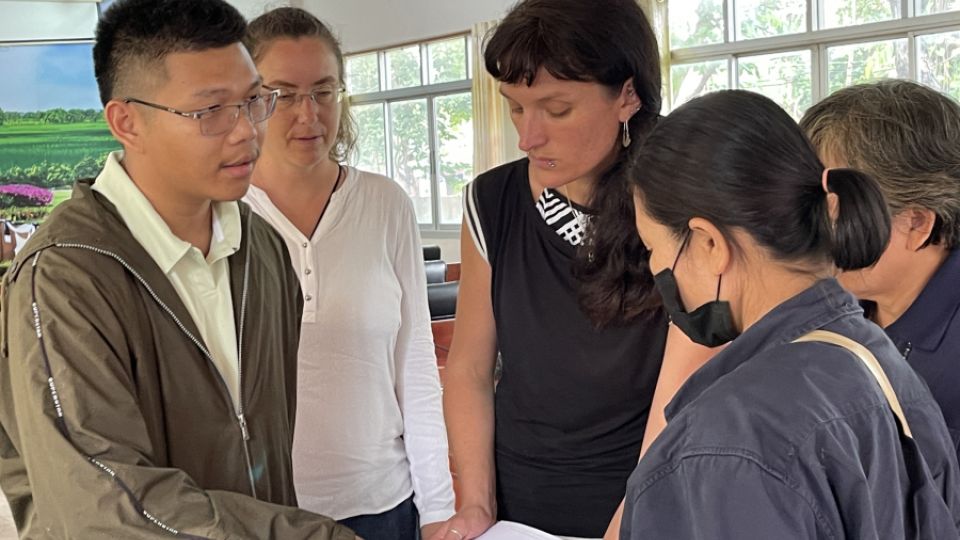On 10 and 12 July 2023, our experts Mgr. Jitka Straková from Arnika and RNDr. Alice Dvorská, independent scientist and lead author of the study, returned to Kalasin province in Thailand to present the results of an extensive environmental and health survey. This study mapped the environmental and human burden of hazardous substances, specifically persistent organic pollutants (POPs), which can come from e-waste.
Electronic equipment often contains various hazardous substances. These include brominated flame retardants, which are present in many plastic materials. Dioxins, which can be produced during the processing of e-waste, are also problematic. These substances pose a serious risk to the environment and human health, and it is, therefore, important to investigate their distribution and impact.
Kalasin survey on e-waste
During their research, Alice and Jitka focused on various locations in Kalasin, including the e-waste dump and small workshops where locals process e-waste. The research was conducted in collaboration with EARTH, a Thai organization that has long supported communities at risk of unregulated industrial emissions. With specific values on the presence of hazardous substances, locals can more effectively advocate for their right to a healthier environment. The results of this study confirmed that substances hazardous to the environment and human health are indeed released from e-waste and contaminate the surrounding environment.
One of the alarming findings was that hazardous substances such as brominated flame retardants and dioxins have entered the food chain of local residents. The study showed contamination of foodstuffs such as eggs, fish and small animals, which may negatively affect the health of people who consume these foods.
The research also revealed the alarming fact that workers involved in the processing of e-waste had hazardous substances detected in their blood. This highlights the serious risk these workers face due to their work and inadequate protection when handling e-waste.
During their July visit, the two researchers shared these results with workers who work in workshops that process e-waste and with local government officials and representatives of government agencies, including the Pollution Control Department (PCD), a body under the Ministry of Environment of Thailand.
Importance for the protection of the environment and human health
The study by Jitka and Alice in Kalasin is vital for environmental protection and improving conditions for people living near e-waste dumpsites and treatment facilities. It highlights the dangers and the need to take measures to minimize pollution and protect workers' health. The research and presentation of results in Kalasin are important steps toward a better understanding of the environmental and human health impacts of e-waste. Hopefully, this work will help to promote greater awareness of the dangers associated with e-waste and lead to the implementation of measures that will ensure the remediation of contaminated sites and the sustainability and protection of the environment for future generations.
This entire survey and the presentation of the results are part of a four-year project called "Public Participation through citizen science and EIA system enhancement," implemented by Arnika and EARTH. This project received financial support from the European Union and the Ministry of Foreign Affairs of the Czech Republic under the Transition Programme.








